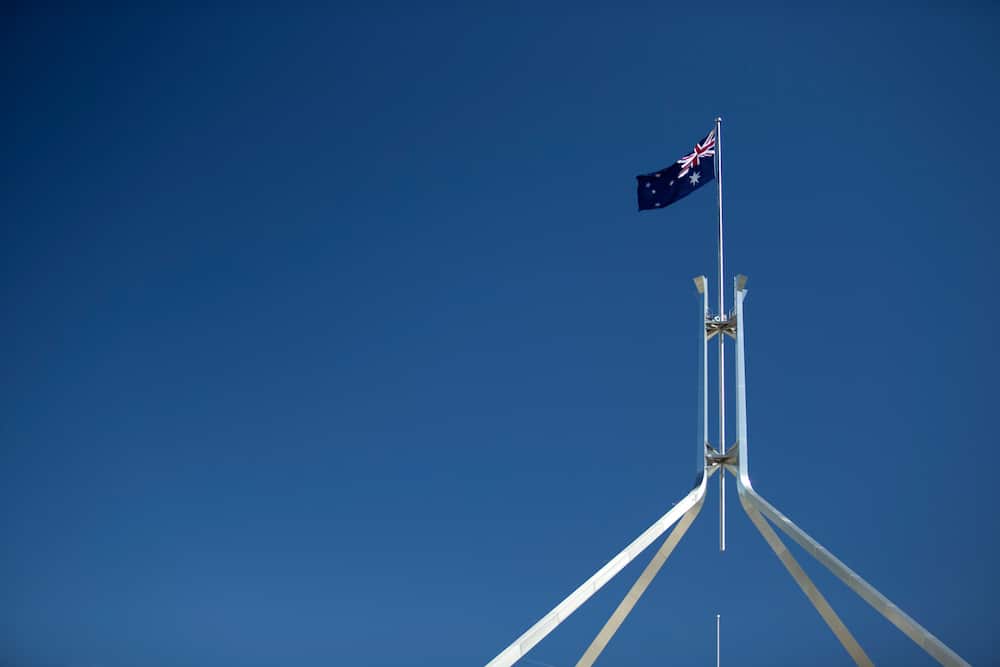Having lowered unemployment in the ACT, the Federal Government has promised its 2021-22 Budget will give thousands of Canberrans a tax break. But Labor and Green politicians and social services fear that it will disadvantage some of Canberra’s most vulnerable people.
Liberal Senator for the ACT Zed Seselja stated that the ACT’s unemployment levels fell to 3.4% because the Federal Government put the right mechanisms in place to create jobs in the private sector, and created more than 7,500 new public service jobs (half of them in Canberra).
ACT Chief Minister Andrew Barr said that Federal Treasurer Josh Frydenberg had listened to the economic advice of Reserve Bank Governor Philip Lowe and Commonwealth Treasury Secretary Dr Steven Kennedy. “Monetary and fiscal policy are being aligned to strive towards full employment. This is a good thing.”
Next, 200,000 Canberrans would receive tax relief of up to $1,080 this financial year, bringing $200 million into the ACT economy.
More budget coverage:
- Overview
- Canberra-specific measures
- Health, education and social services
- Tax versus poverty relief
- Housing
- Infrastructure and the environment
The Low- and Middle-Income Tax Offset (LMITO), introduced in 2020–21, has been retained for another year. The Government estimates the scheme will have created 50,000 more jobs by the end of the financial year, and boosted GDP by around $3.5 billion in 2020–21 and $9 billion in 2021–22. Treasury estimates that extending the LMITO will boost GDP by around $4.5 billion in 2022-23 and will create an additional 20,000 jobs by the end of 2022-23.
In addition, small and medium businesses will receive tax cuts of more than $16 billion by 2023–24, including reducing the tax rate for small and medium companies from 30% in 2014–15 to 25% from 1 July.
LMITO is Stage 1 of the Government’s Personal Income Tax Plan (PITP). The Government expects PITP to deliver further tax cuts of up to $7,020 for individuals between 2018–19 and 2021–22. LMITO, designed as a temporary measure, could end next year.
In last year’s Budget, the Government announced that Stage 2 would take effect from 1 July 2020, expanding the 32.5% tax bracket from incomes up to $90,000 to incomes up to $120,000.
Stage 3 of the PITP will be implemented in 2024–25, introducing a single flat tax rate on every dollar earned between $45,000 and $200,000. The Government states that 95% of taxpayers will face a marginal tax rate of 30% or less.
“Lower taxes means that hard-working Australians will keep more of what they earn, allowing them to spend more, help grow the economy, and create more jobs,” the Government’s website stated.
Many worry that these tax cuts will unfairly benefit the wealthy.
Labor Senator Katy Gallagher warned, however, that wages would go backward. “Beyond the hype and the headlines, Australians on modest incomes will only receive a temporary tax break before the election and be dealt a tax hike after it, while the highest income earners will enjoy a permanent tax cut forever.”
Greens candidates Dr Tjanara Goreng Goreng and Tim Hollo said Stage 3 would provide $62 billion in handouts to billionaires and big corporations – a third of which paid no tax – while the government accepted years of low or no wage growth, and pushed too many people into poverty. These figures are based on analysis done by Greens leader Adam Bandt’s office.
| Corporate Welfare (one year) | (million) |
| Aged Care (payments to private providers) | $6,212 |
| Employment Services (firms like Sarina Russo) | $1,316 |
| VET (private colleges, not TAFE) | $1,134 |
| Private Health Companies (PHI Rebate) | $6,747 |
| Public Services (Consulting Firms) | $3,385 |
| Fuel Tax Credits (tax refunds for diesel fuel) | $8,072 |
| Defence Contracts | $31,371 |
| Miscellaneous Coal, Oil & Gas Funding | $3,312 |
| Total “Corporate Welfare” (millions) | $61,549 |
Dr Goreng Goreng said the first year of Stage 3 tax cuts would put $5.5 billion more into men’s pockets than into women’s.
“Women were more likely to lose their job during the pandemic and less likely to be able to access JobKeeper, because women are more likely to be in insecure, casualised work in industries that missed out on government support.”
The ACT Council of Social Service (ACTCOSS)’s Dr Emma Campbell also argued that the Budget did not support people on low incomes.
“So far, the government has given around $20 billion in personal tax cuts to people already in paid jobs for the next financial year, plus tens of billions in business tax incentives. But there is not a single cent more to people living in deep poverty, including women on low incomes.”
Dr Campbell disagreed that the Government’s measures had substantively helped the poor or unemployed. True, the Government had expanded training and local jobs programs for the unemployed, but more than 10,000 Canberrans (1.5 times more than before COVID-19) were on welfare payments like JobSeeker or Youth Allowance, living below the poverty line. Migrants had to wait longer to access social security payments, which could have “serious consequences”.
“Poor people have had little say, and little to celebrate in this Budget,” Mr Hollo said. “Elected representatives should be listening to people most impacted by their decisions, not the lobbyists and corporate donors that have flooded government offices over the past few months.”
Mr Hollo will facilitate a forum for people resisting poverty to reply to the Budget tonight. The event at the Polish Club is hosted by the Australian Unemployed Workers’ Union, the Green Institute, and the Antipoverty Centre, and sponsored by the ACT Greens.



